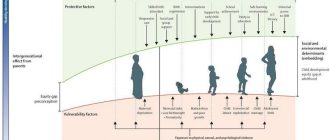 Essential Steps to Take Before Your H pylori Test: A Comprehensive Guide
Essential Steps to Take Before Your H pylori Test: A Comprehensive Guide
If you are experiencing symptoms such as abdominal pain, bloating, or indigestion, your doctor may recommend a test for H pylori, a bacterium that can cause stomach infections. This test is important for diagnosing and treating the infection. To ensure accurate results, it is essential to properly prepare for the test.
Before the Test:
Before undergoing an H pylori test, it is important to inform your doctor about any medications you are currently taking. Some medications, such as antibiotics and proton pump inhibitors, can interfere with the accuracy of the test results. Your doctor may advise you to stop taking these medications for a certain period before the test.
You should also avoid certain foods and drinks before the test, as they can affect the results. These include antibiotics, bismuth-containing medications, and certain types of antacids. It is recommended to consult your doctor or healthcare provider for specific instructions on dietary restrictions.
Remember to follow any specific instructions provided by your doctor to ensure the accuracy of the H pylori test results. By properly preparing for the test, you can help your doctor diagnose and treat any H pylori infection more effectively.
Diet and Medications to Avoid Before Testing
Before undergoing a test for H pylori, it is important to follow certain dietary and medication restrictions to ensure accurate results. These restrictions help prevent false positive or false negative results.
Dietary restrictions:
It is recommended to avoid the following foods and beverages for at least two weeks before the test:
- Spicy foods
- Acidic foods and beverages, such as citrus fruits and juices
- Caffeine
- Alcohol
- Carbonated drinks
These restrictions are important because certain foods and beverages can irritate the stomach lining and increase acid production, potentially affecting the accuracy of the test results.
Medication restrictions:
It is important to inform your healthcare provider about any medications you are currently taking, as some medications can interfere with the accuracy of the H pylori test. Your healthcare provider may advise you to temporarily stop taking certain medications, such as:
- Antibiotics
- Proton pump inhibitors (PPIs)
- Histamine H2 receptor blockers
- Bismuth subsalicylate
These medications can affect the bacteria in the stomach, potentially leading to false negative results. It is important to follow your healthcare provider’s instructions regarding medication restrictions before the H pylori test.
Note: Do not stop taking any medications without consulting your healthcare provider first.
By following these dietary and medication restrictions, you can help ensure accurate results from your H pylori test. Remember to consult your healthcare provider for specific instructions tailored to your individual situation.
Stop PPIs and Antacids
If you are currently taking proton pump inhibitors (PPIs) or antacids, it is important to stop taking them before your H pylori test. These medications can affect the accuracy of the test results.
PPIs are medications that reduce the amount of acid produced in your stomach. Commonly prescribed PPIs include omeprazole, lansoprazole, and esomeprazole. Antacids, on the other hand, neutralize the acid in your stomach and provide temporary relief from heartburn and indigestion.
Both PPIs and antacids can interfere with the accuracy of the H pylori test by reducing the amount of acid in your stomach. This can make it more difficult for the test to detect the presence of the H pylori bacteria.
It is recommended to stop taking PPIs and antacids for at least two weeks before your H pylori test. However, it is important to consult with your healthcare provider before making any changes to your medication regimen.
If you are unsure about whether to stop taking PPIs or antacids, speak to your healthcare provider. They will be able to provide you with specific instructions based on your individual circumstances.
Fasting Requirements
When preparing for your H pylori test, it is important to follow fasting requirements in order to ensure accurate results. Fasting means avoiding eating or drinking anything (except water) for a specific period of time before the test.
The fasting requirements may vary depending on the type of H pylori test being performed. It is best to consult with your healthcare provider or the testing facility to get specific instructions for your test.
Here are some general guidelines for fasting before an H pylori test:
- For a breath test: You will need to fast for at least 2 hours before the test. This means no eating, drinking, smoking, or chewing gum during this time.
- For a blood test: You may need to fast for 8-12 hours before the test. This means no eating or drinking anything except water during this time.
- For a stool test: You may need to avoid certain medications or substances, such as antacids or proton pump inhibitors, for a specific period of time before the test. It is important to follow any instructions given by your healthcare provider.
It is important to adhere to the fasting requirements to ensure accurate results. Eating or drinking anything before the test can affect the levels of H pylori bacteria in your body and may lead to a false negative result.
If you have any questions or concerns about the fasting requirements for your H pylori test, be sure to contact your healthcare provider or the testing facility for clarification.
Allowed Clear Liquids
Before your H pylori test, it is important to follow a strict diet to ensure accurate results. One important aspect of this diet is consuming only clear liquids. Clear liquids are defined as liquids that are transparent and do not contain any solid particles or residue.
Examples of allowed clear liquids include:
- Water
- Clear broth (chicken, beef, or vegetable)
- Apple juice (without pulp)
- Cranberry juice (without pulp)
- Clear soda (ginger ale, lemon-lime soda)
- Black tea (without milk or cream)
- Clear fruit-flavored gelatin (without fruit pieces)
It is important to avoid any liquids that are not considered clear, such as milk, coffee, or orange juice with pulp. These liquids can interfere with the accuracy of the test results.
Remember to follow your healthcare provider’s instructions regarding when to stop consuming clear liquids before the H pylori test. It is usually recommended to stop consuming clear liquids at least 12 hours before the test to ensure accurate results.
Note: If you have any concerns or questions about the diet before your H pylori test, it is best to consult with your healthcare provider for specific instructions.
Fasting Needed Before the H. pylori Test
Before undergoing an H. pylori test, it is important to follow certain fasting guidelines. Fasting helps ensure accurate test results and increases the likelihood of detecting the presence of the H. pylori bacteria.
The fasting period typically lasts for 6 to 8 hours, during which you should refrain from consuming any food or beverages. This includes water, as it may interfere with the accuracy of the test results.
It is advisable to schedule your test in the morning to make fasting more convenient. You can have a light dinner the night before and then fast until the test is conducted. This allows for sufficient time for your stomach to empty, increasing the accuracy of the test.
During the fasting period, it is important to avoid smoking, chewing gum, or consuming any medications or supplements that may interfere with the test results. These substances can affect the pH levels in your stomach and potentially lead to false-negative or false-positive results.
If you have any concerns or questions about the fasting guidelines for the H. pylori test, it is recommended to consult with your healthcare provider. They can provide you with specific instructions based on your individual circumstances.
| Do | Don’t |
| Follow the fasting guidelines provided by your healthcare provider. | Consume any food or beverages during the fasting period. |
| Schedule your test in the morning to make fasting more convenient. | Smoke or chew gum during the fasting period. |
| Have a light dinner the night before the test. | Take any medications or supplements that may interfere with the test results. |
| Drink water after the fasting period is over and before the test. |
Hours of Fasting
Before getting tested for H pylori, it is important to follow the fasting guidelines provided by your healthcare provider. Fasting means that you should not eat or drink anything, except plain water, for a certain period of time before the test.
The hours of fasting required may vary depending on the type of test you are having. In general, you may be asked to fast for at least 6 to 8 hours before the test. This means that you should avoid eating or drinking anything, including medications, during this time.
It is important to follow the fasting instructions carefully to ensure accurate test results. If you do not fast for the recommended hours, it may affect the accuracy of the test and you may need to repeat it.
Note: If you have any questions about the fasting requirements for your H pylori test, it is best to consult with your healthcare provider. They will provide you with specific instructions based on the type of test you are having.
Water Permitted
Before undergoing the H pylori test, it is important to follow certain guidelines to ensure accurate results. One of the main instructions is to abstain from consuming any substances that may interfere with the test. However, water is generally permitted and can be consumed as usual prior to the test.
Drinking water before the H pylori test is allowed because it does not affect the accuracy of the results. Unlike other beverages or foods, water does not contain substances that may interfere with the test or alter the levels of H pylori in the stomach. Therefore, you can stay hydrated and drink water as normal before the test.
It is important to note that while water is permitted, other liquids such as coffee, tea, juice, or carbonated drinks should be avoided. These beverages may contain certain compounds that can affect the test results, potentially leading to inaccurate diagnosis. It is best to stick to plain water and refrain from consuming any other liquids before the test.
Remember to follow any additional instructions provided by your healthcare provider regarding fasting or dietary restrictions before the H pylori test. These guidelines are put in place to ensure accurate results and improve the effectiveness of the test in diagnosing H pylori infection.
Purpose of Fasting
Fasting is an important step to prepare for your H pylori test. It involves refraining from eating or drinking anything except water for a certain period of time before the test. The purpose of fasting is to ensure accurate results.
By fasting, you are able to give your body enough time to metabolize and eliminate any food or beverages that might interfere with the test. This includes certain medications, as well as substances that can affect the levels of H pylori bacteria in your stomach.
It is important to follow the fasting instructions provided by your healthcare provider. Typically, you will be advised to fast for a specific number of hours before the test. This may range from 4 to 12 hours, depending on the type of test being conducted.
During the fasting period, it is important to avoid consuming anything that can affect the test results. This includes food, beverages (except water), gum, mints, and smoking. It is also important to abstain from taking any medications or supplements, unless otherwise instructed by your healthcare provider.
Remember, fasting is crucial to ensure accurate results for your H pylori test. By following the fasting instructions provided, you can help your healthcare provider make an accurate diagnosis and develop an appropriate treatment plan, if necessary.
Stopping Medications Prior to Testing
Before undergoing a test for H pylori, it is important to consult with your healthcare provider about any medications you are currently taking. Some medications can interfere with the accuracy of the test results, so it may be necessary to stop taking them temporarily.
Antibiotics: If you are currently taking antibiotics, it is crucial to discontinue their use for at least two weeks before the test. Antibiotics can kill the H pylori bacteria, which can lead to a false negative result.
Proton pump inhibitors (PPIs): PPIs are commonly used to reduce stomach acid and relieve symptoms such as heartburn. However, they can also affect the accuracy of the H pylori test. It is recommended to stop taking PPIs for at least two weeks prior to the test.
H2 blockers: H2 blockers are another type of medication used to reduce stomach acid. Like PPIs, they can interfere with the H pylori test results. It is advisable to stop taking H2 blockers for at least two weeks before the test.
Antacids: Antacids can provide temporary relief from acid reflux and indigestion. However, they can also affect the accuracy of the H pylori test. It is recommended to stop taking antacids for at least two weeks prior to the test.
It is important to note that you should never discontinue any medication without first consulting with your healthcare provider. They will be able to provide guidance on when and how to stop taking the medications in order to ensure accurate test results.
PPIs and Antibiotics
PPIs, or proton pump inhibitors, are medications that help reduce the production of stomach acid. They are often prescribed to treat conditions such as ulcers and gastroesophageal reflux disease (GERD). However, if you are scheduled to take a test for H pylori, it is important to discuss with your healthcare provider whether or not you should continue taking PPIs. PPIs can affect the accuracy of the H pylori test results, so it may be necessary to stop taking them for a period of time before the test.
In addition to PPIs, antibiotics are another type of medication that may interfere with H pylori test results. Antibiotics are commonly used to treat bacterial infections, including H pylori infections. If you are currently taking antibiotics or have recently completed a course of antibiotics, it is important to inform your healthcare provider before the H pylori test. They may advise you to wait for a certain period of time before taking the test to ensure accurate results.
It is important to follow your healthcare provider’s instructions regarding the use of PPIs and antibiotics before the H pylori test. They will be able to provide you with specific guidance based on your individual circumstances. By properly preparing for the test, you can help ensure accurate results and receive appropriate treatment if necessary.
Timing of Medication Washout
Before undergoing an H pylori test, it is important to stop taking certain medications that could interfere with the accuracy of the results. This is known as a medication washout period. The length of the washout period can vary depending on the specific medication being taken.
Proton pump inhibitors (PPIs): If you are taking a PPI, such as omeprazole or lansoprazole, it is recommended to stop taking it at least two weeks before the H pylori test. PPIs can reduce the amount of acid in the stomach, which can affect the growth of H pylori bacteria. By stopping the medication, the test results will be more accurate.
H2 blockers: Medications like ranitidine or famotidine, which are H2 blockers, should also be stopped at least two weeks before the test. H2 blockers work by reducing the production of stomach acid, which can impact the detection of H pylori during the test.
Antibiotics: If you are currently taking antibiotics, it is important to complete the full course of treatment before undergoing an H pylori test. Antibiotics can kill H pylori bacteria, which could lead to a false negative result if taken too close to the test.
Other medications: It is recommended to consult with your healthcare provider about any other medications you are taking. They will provide specific instructions on when to stop taking them before the test.
Note: It is important to follow the instructions provided by your healthcare provider regarding the timing of medication washout. Stopping medications without proper guidance can have adverse effects on your health.
Check with Doctor
Before undergoing an H pylori test, it is important to check with your doctor. They will be able to provide you with specific instructions and guidelines to follow in preparation for the test. Your doctor may also ask about any medications you are currently taking, as some medications can interfere with the accuracy of the test results.
Additionally, if you have any underlying health conditions or allergies, it is crucial to inform your doctor beforehand. They will take these factors into consideration when determining the most appropriate H pylori test for you.
It is also important to discuss any symptoms you may be experiencing with your doctor. Symptoms such as persistent abdominal pain, nausea, vomiting, or unexplained weight loss may indicate an H pylori infection and should be addressed promptly.
Your doctor will guide you through the process of scheduling and preparing for the H pylori test, ensuring that you have all the necessary information and resources to undergo the test successfully.
Eating Restrictions After the H. pylori Test
After undergoing the H. pylori test, it is important to follow certain eating restrictions to ensure an accurate test result and to promote healing.
First and foremost, it is recommended to avoid eating or drinking anything for at least 6 hours prior to the test. This includes water, as it can interfere with the accuracy of the test.
Once the test is completed, your healthcare provider may recommend a specific diet to follow. This may include avoiding spicy foods, acidic foods, and caffeinated beverages, as these can irritate the stomach lining and worsen symptoms.
It is also important to avoid nonsteroidal anti-inflammatory drugs (NSAIDs) such as aspirin, ibuprofen, and naproxen, as they can increase the risk of stomach bleeding and damage.
If you are prescribed antibiotics to treat H. pylori infection, it is crucial to take them as directed and to complete the full course of treatment. Failure to do so may result in antibiotic resistance and a recurrence of the infection.
Additionally, it is advised to eat smaller, more frequent meals and to chew your food thoroughly. This can help alleviate symptoms such as bloating and indigestion.
Remember to listen to your body and pay attention to any symptoms or discomfort you may experience. If you have any concerns or questions about your diet or eating restrictions after the H. pylori test, it is best to consult with your healthcare provider.
Gradually Resume Diet
After completing your treatment for H pylori, it is important to gradually resume your regular diet. Your stomach may have been sensitive during treatment, so it is best to introduce foods slowly and monitor how your body reacts.
Start by eating small, frequent meals throughout the day instead of three large meals. This will help your stomach adjust to digesting food again. Choose easily digestible foods such as lean meats, cooked vegetables, and whole grains.
Avoid spicy, greasy, and fatty foods, as these can irritate your stomach. It is also recommended to avoid alcohol and caffeine, as they can increase stomach acid production and worsen any remaining symptoms.
Listen to your body and pay attention to any symptoms or discomfort that may arise. If you experience any new or worsening symptoms, it is important to contact your healthcare provider for further evaluation.
Remember to stay hydrated by drinking plenty of water and avoid carbonated beverages. This will help flush out any remaining bacteria and promote overall gastrointestinal health.
Gradually resuming your diet will allow your stomach to heal and recover fully from the H pylori infection. By making mindful food choices and listening to your body, you can support your recovery and maintain a healthy digestive system.
Avoid Heavy Meals Initially
Before your H pylori test, it is important to avoid consuming heavy meals. Heavy meals can interfere with the accuracy of the test results. When you eat a heavy meal, it can cause your stomach to produce more acid, which can affect the pH levels in your stomach. This can make it more difficult to accurately detect the presence of H pylori bacteria.
Instead of having a heavy meal, opt for lighter meals that are easier to digest. This can help maintain the natural pH levels in your stomach and ensure more accurate test results. You can choose to have smaller, more frequent meals throughout the day to avoid feeling hungry or deprived.
It is also important to avoid consuming any foods or beverages that may irritate your stomach or increase acid production. This includes spicy foods, citrus fruits, caffeine, and alcohol. These substances can affect the pH levels in your stomach and interfere with the accuracy of the test results.
By avoiding heavy meals and irritating foods or beverages, you can help ensure that your H pylori test results are as accurate as possible. This will provide your healthcare provider with the information they need to make an accurate diagnosis and determine the most appropriate treatment plan for you.
Prevent Nausea and Vomiting
If you are scheduled to take an H pylori test, it is important to take steps to prevent nausea and vomiting during the test. Nausea and vomiting can interfere with the accuracy of the test results and make it more difficult for your healthcare provider to diagnose and treat your condition.
Here are some tips to help prevent nausea and vomiting:
| 1. | Avoid eating or drinking for at least 6 hours before the test. |
| 2. | Avoid foods and drinks that are known to cause nausea, such as spicy or greasy foods. |
| 3. | Stay hydrated by drinking clear fluids, such as water, before the test. |
| 4. | Avoid alcohol and caffeinated beverages before the test, as they can irritate the stomach and increase the risk of nausea. |
| 5. | If you are prone to motion sickness, consider taking an over-the-counter motion sickness medication before the test. |
| 6. | Talk to your healthcare provider about any medications you are currently taking, as some medications can cause nausea and vomiting. |
| 7. | Try relaxation techniques, such as deep breathing or meditation, to help reduce anxiety and prevent nausea. |
| 8. | If you do experience nausea or vomiting during the test, let your healthcare provider know immediately. |
By following these tips, you can help ensure a more accurate H pylori test and a smoother testing experience.
Antibiotic Washout Times Before H. pylori Test
Before undergoing a test for H. pylori, it is important to stop taking certain medications, including antibiotics, to ensure accurate results. Antibiotics can interfere with the accuracy of the test, so it is crucial to follow the recommended washout times before getting tested.
The washout period refers to the amount of time it takes for a medication to be eliminated from the body. Different antibiotics have different washout times, so it is important to consult with your healthcare provider to determine when to stop taking your specific antibiotic before the H. pylori test.
Here are some general guidelines for antibiotic washout times:
- Amoxicillin: Stop taking amoxicillin at least 2 weeks before the H. pylori test.
- Clarithromycin: Stop taking clarithromycin at least 2 weeks before the H. pylori test.
- Metronidazole: Stop taking metronidazole at least 2 weeks before the H. pylori test.
- Tetracycline: Stop taking tetracycline at least 4 weeks before the H. pylori test.
It is important to note that these are general guidelines, and the specific washout times may vary depending on your individual situation. Always consult with your healthcare provider for personalized instructions.
Stopping antibiotics before the H. pylori test allows for more accurate results and helps to ensure that the infection is properly detected and treated. Following the recommended washout times is an essential step in preparing for the H. pylori test.
Duration Depends on Antibiotic
The duration of treatment for H. pylori infection depends on the specific antibiotic prescribed by your healthcare provider. The most commonly used antibiotics for H. pylori treatment include:
- Amoxicillin
- Clarithromycin
- Metronidazole
- Tetracycline
Your healthcare provider will determine the duration of your antibiotic treatment based on several factors, including the severity of your infection, your medical history, and any other medications you may be taking. It is important to follow your healthcare provider’s instructions and complete the full course of antibiotics, even if you start feeling better before the treatment is finished.
In general, H. pylori treatment usually lasts for about 10 to 14 days. However, the duration may vary depending on the specific antibiotic and the individual patient. Some antibiotic regimens may require taking multiple antibiotics at the same time, while others may involve sequential therapy, where different antibiotics are taken one after the other.
It is important to take the antibiotics as prescribed and at the recommended times to ensure the effectiveness of the treatment. Missing doses or stopping the treatment early can contribute to antibiotic resistance and may result in treatment failure.
During the course of antibiotic treatment, it is common to experience side effects such as nausea, diarrhea, or stomach upset. If you experience severe or persistent side effects, it is important to contact your healthcare provider for further guidance.
After completing the antibiotic treatment, your healthcare provider may recommend a follow-up test to confirm the eradication of H. pylori. This may involve a breath test, stool test, or endoscopy with biopsy to check for the presence of the bacteria.
It is important to discuss any questions or concerns about your antibiotic treatment with your healthcare provider. They can provide you with personalized recommendations and guidance to ensure the most effective treatment for your H. pylori infection.
2-4 Weeks Typically Needed
Preparing for an H pylori test usually requires some time in advance. The process involves stopping certain medications, supplements, and antibiotics that can interfere with the test results. Typically, you will need to avoid taking proton pump inhibitors (PPIs), antibiotics, and bismuth-containing medications for at least 2-4 weeks before the test.
Proton pump inhibitors (PPIs) are medications commonly used to reduce stomach acid production. These medications can affect the accuracy of the H pylori test by reducing the bacteria’s presence in the stomach. It is important to stop taking PPIs before the test to ensure accurate results.
Antibiotics are medications used to treat bacterial infections. If you are currently taking antibiotics or have recently completed a course of antibiotics, it is essential to wait for at least 2-4 weeks before undergoing an H pylori test. This waiting period allows the antibiotics to clear from your system, preventing any interference with the test results.
Bismuth-containing medications, such as Pepto-Bismol, can also interfere with the accuracy of the H pylori test. It is recommended to avoid taking these medications for 2-4 weeks before the test to ensure reliable results.
During the 2-4 weeks leading up to the H pylori test, it is important to follow your healthcare provider’s instructions carefully. Make sure to communicate any medications or supplements you are taking to your healthcare provider to ensure accurate testing and diagnosis.
Remember, the preparation period is essential for obtaining reliable results from your H pylori test. Following the recommended guidelines and allowing enough time will help ensure accurate diagnosis and appropriate treatment if necessary.
Account for Active Metabolites
When preparing for your H pylori test, it is important to account for the presence of active metabolites in your body. Active metabolites are the byproducts produced when your body breaks down certain medications or substances. These metabolites can interfere with the accuracy of the H pylori test results.
Before taking the test, make sure to inform your healthcare provider about any medications or substances you are currently taking. This includes prescription medications, over-the-counter drugs, herbal supplements, and recreational drugs. Your healthcare provider will instruct you on whether you need to temporarily discontinue any medications or substances to ensure accurate H pylori test results.
Additionally, it is important to follow any fasting instructions provided by your healthcare provider. Fasting helps to ensure that the test results are not affected by any recent food intake. Typically, you will be asked to refrain from eating or drinking anything, except for water, for a certain period of time before the test.
By accounting for active metabolites and following the fasting instructions, you can help ensure accurate and reliable H pylori test results, allowing your healthcare provider to make an informed diagnosis and provide appropriate treatment if necessary.
Getting Kids Ready for the H. pylori Exam
Preparing your child for a medical examination can help alleviate any anxiety they may have about the process. Here are some steps to follow to ensure your child is ready for their H. pylori exam:
- Explain the purpose of the test: It’s important to talk to your child about why they need to undergo the H. pylori exam. Use age-appropriate language to explain that the test will help the doctor check for a bacteria in their stomach that can cause certain health problems.
- Answer their questions: Encourage your child to ask any questions they may have about the exam. Provide honest and simple answers to help ease their concerns. Reassure them that the test is safe and will not cause any pain.
- Discuss the procedure: Explain to your child what will happen during the exam. Let them know that they may need to provide a stool or breath sample, and reassure them that the process will be quick and simple.
- Address any fears: If your child is afraid of needles or medical equipment, acknowledge their fears and provide reassurance. Let them know that the healthcare professionals will be gentle and supportive throughout the exam.
- Assure them of your presence: Let your child know that you will be with them during the entire exam. Offer to hold their hand or sit close to them for comfort and support.
- Distract and comfort: Bring along a favorite toy, book, or game to help distract your child during the exam. Offer words of encouragement and praise throughout the process.
- Follow any pre-exam instructions: Ensure that your child follows any specific instructions given by the healthcare provider, such as fasting or avoiding certain medications before the exam.
By following these steps, you can help your child feel more at ease and prepared for their H. pylori exam. Remember to stay positive and provide support throughout the process.
Explain the Test
The H pylori test is used to diagnose the presence of Helicobacter pylori bacteria in the stomach. This bacteria is known to cause various digestive problems including ulcers and gastritis. The test can help determine if H pylori is the cause of your symptoms and guide the appropriate treatment.
There are several methods for testing for H pylori:
- Blood test: This involves taking a blood sample and testing it for antibodies to H pylori. A positive result indicates a current or previous infection.
- Breath test: This test involves drinking a solution containing a small amount of radioactive carbon. If H pylori is present, it will break down the solution and release radioactive carbon dioxide, which can be detected in your breath.
- Stool test: This involves collecting a stool sample and testing it for the presence of H pylori antigens. This test is often used to monitor the effectiveness of treatment after it has been completed.
- Biopsy: During an endoscopy, a small tissue sample is taken from the stomach lining and examined under a microscope for the presence of H pylori bacteria.
It is important to follow any instructions provided by your healthcare provider to ensure accurate test results. Depending on the method used, you may need to avoid certain medications, foods, or drinks before the test. Your healthcare provider will provide specific instructions tailored to your situation.
Fasting Challenges
While fasting for the H pylori test is necessary, it can present some challenges. Here are a few things to keep in mind:
Feeling hungry: It is normal to feel hungry during the fasting period, especially if you are used to eating at regular intervals. However, it is important to resist the temptation to eat or drink anything during the fasting period to ensure accurate test results.
Medications: Some medications may need to be taken with food, so it is important to consult with your healthcare provider about any medications you are currently taking. They will be able to provide guidance on whether you should continue taking them during the fasting period or make any necessary adjustments.
Morning routine: Fasting in the morning may disrupt your usual routine, especially if you are used to having breakfast. It can be helpful to plan some activities or distractions to keep your mind off food during the fasting period.
Hydration: While fasting, it is important to stay hydrated. You can drink water during the fasting period, but it is important to avoid other beverages, such as coffee, tea, or juice, as they can interfere with the test results.
Managing symptoms: If you experience any symptoms during the fasting period, such as dizziness or weakness, it is important to notify your healthcare provider. They will be able to provide guidance on how to manage these symptoms while still fasting for the test.
By being aware of these fasting challenges and following the necessary guidelines, you can ensure accurate test results for your H pylori test.
Sedation Options
If you are feeling anxious or nervous about your H pylori test, there are sedation options available to help you feel more comfortable during the procedure. Sedation can help to relax your muscles and reduce any discomfort or pain you may experience.
One sedation option is oral sedation, which involves taking medication by mouth to help you relax before the test. This can be in the form of a pill or liquid. The medication will help you feel calm and drowsy, making the procedure easier to tolerate.
Another sedation option is intravenous (IV) sedation, which involves receiving medication through a small needle inserted into a vein. IV sedation can provide a deeper level of relaxation and may be more suitable for individuals with severe anxiety or medical conditions that may make oral sedation less effective.
Your healthcare provider will discuss the sedation options with you and help determine which option is best for you based on your individual needs and medical history. It is important to follow any instructions provided by your healthcare provider regarding fasting or medication restrictions prior to the test if sedation is being used.
Remember, sedation is an option to help you feel more comfortable during your H pylori test, but it is not always necessary. Your healthcare provider will work with you to ensure you have the best experience possible during the procedure.
Question and answer:
What is H pylori?
H pylori is a type of bacteria that can infect the stomach and the upper part of the small intestine. It is a common infection and can cause various digestive problems.
What are the symptoms of H pylori infection?
The symptoms of H pylori infection can vary, but common symptoms include stomach pain, bloating, nausea, vomiting, loss of appetite, and weight loss. Some people may also experience black or tarry stools.
How is H pylori infection diagnosed?
H pylori infection can be diagnosed through various tests, including blood tests, breath tests, stool tests, and endoscopy. These tests can detect the presence of the bacteria or its antibodies in the body.
How should I prepare for an H pylori test?
The preparation for an H pylori test may vary depending on the type of test. In general, you may be asked to stop taking certain medications, such as antibiotics or antacids, before the test. It is also important to follow any specific instructions given by your healthcare provider.
What are the treatment options for H pylori infection?
The treatment for H pylori infection usually involves a combination of antibiotics and acid-suppressing medications. The specific medications and duration of treatment will depend on various factors, such as the severity of the infection and the presence of any complications.
What is H pylori?
H pylori, or Helicobacter pylori, is a type of bacteria that infects the stomach and is a common cause of peptic ulcers and gastritis.
How is H pylori infection diagnosed?
H pylori infection can be diagnosed through various tests, such as blood tests, breath tests, stool tests, and endoscopy with biopsy.
What are the symptoms of H pylori infection?
Some people with H pylori infection may not experience any symptoms, while others may have symptoms such as abdominal pain, bloating, nausea, vomiting, and weight loss.
How should I prepare for an H pylori test?
The preparation for an H pylori test may vary depending on the specific test being performed. Generally, it is recommended to avoid certain medications, such as antibiotics and acid-reducing drugs, for a specified period of time before the test. It is also important to follow any dietary restrictions, such as avoiding food and beverages for a certain period of time before the test.
What are the treatment options for H pylori infection?
The treatment for H pylori infection usually involves a combination of antibiotics, proton pump inhibitors, and other medications to eradicate the bacteria and reduce inflammation in the stomach. The specific treatment regimen may vary depending on factors such as the severity of the infection and the presence of any complications.






